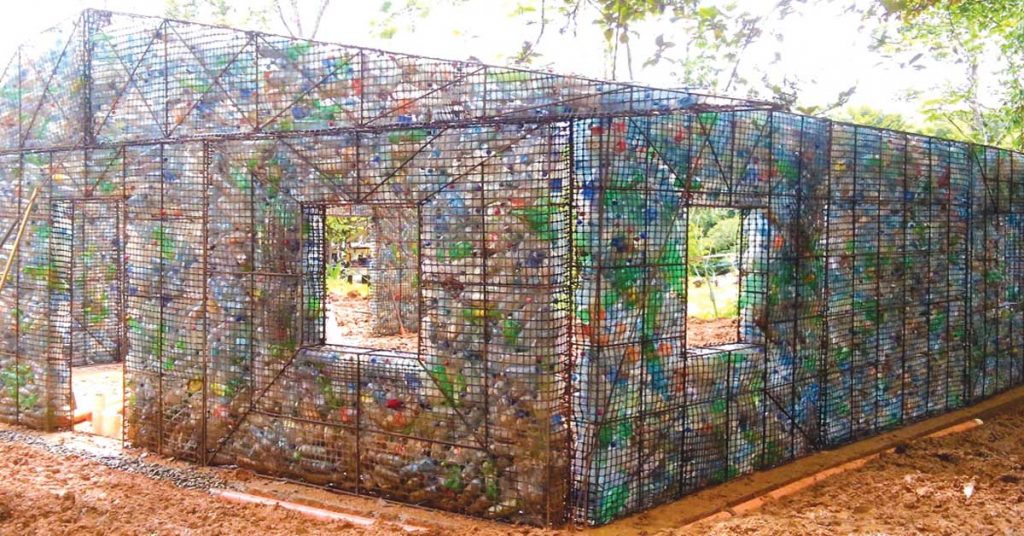By: Carmelito Q. Francisco
 |
Plastic waste gets processed into a chair at the Winder Recycling plant in Davao City. — CARMELITO Q. FRANCISCO
DAVAO CITY — Winder Recycling Co. is preparing to roll out prefabricated houses made from plastic waste by next year, according to Managing Partner Winchester O. Lemen.
Mr. Lemen, who also heads the Zambales-based Envirotech Waste Recycling Inc. (EWRI), which produces furniture from plastic trash, said they have designed a 28-square meter house that is estimated to cost not more than P350,000.
The house, he said, is “suitable for rural areas because aside from it can be built fast, it will use solar panels and can even collect rainwater.”
Mr. Lemen said they are planning to partner with the Home Development Mutual Fund, better known as Pag-IBIG Fund, to allow members to apply for a loan for their product.
“We will make sure that Pag-IBIG Fund will know about this project,” he said.
Each housing unit will require about three tons of plastic waste.
Winder Recycling’s Davao plant can mold about 60 tons of plastic per month.
Aside from furniture and house production, the company is also pursuing partnerships with local government units (LGUs) and national agencies on plastic waste management, including transfer of their technology.
“We can help them manage their (LGUs’) plastic wastes,” he said.
Under the scheme, an LGUs must look for a corporate sponsor for the facility that would cost about P12 million to set up and requires at least 800 square meters, while Winder Recycling will provide training to those who will operate the plant.
He cited one partnership in Claver, Surigao del Norte, wherein a mining company funded the facility that could employ at least 40.
“We are encouraging other companies to do their share (by partnering with LGUs in setting up the processing plants),” he said.
The EWRI processing plant in Candelaria, Zambales, mainly produces chairs for schools and offices.
The school chairs, which cost an average of P1,700 each, are usually purchased by companies through their corporate social responsibility fund and donated to public schools.
Mr. Lemen said they are also working on potential expansion opportunities in other countries, including India, Nepal, and France.
In France, he cited, a company wants exclusivity for the processing plant that it wants to install “as soon as possible because they know what is happening” in terms of the global problem on plastic waste.
Source: bworldonline.com
